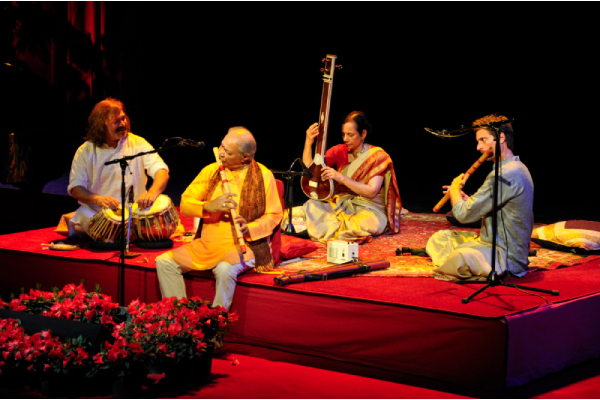The Evolution of Pop Music
The term “pop” refers to music that is popular with the general audience. Its origins can be traced back to decades before the twentieth century, but it wasn’t formally used until then, and it’s been used as one of many phrases people use when discussing various types of music or genres they enjoy ever since.
The Beginnings
Music has been around for millennia and is a time-honored art form. The first songs were performed in music halls and became popular thanks to professional songwriters’ catchy lyrics. Early in the twentieth century, recorded sound was pioneered, allowing albums to be easily manufactured and circulated through 78rpm gramophones at inexpensive prices, making it easier than ever before to hear new sounds on demand!
Thomas Edison invented his electric pen recorder system for recording audio onto wax discs in 1899; however, he had little success because there was nothing that could be done to play back recordings without an expensive phonograph or other electroacoustic instrument. Recorded sound evolved along with technology: from records played on vinyl platters to digital recordings.
Tin Pan Alley in New York City was home to a new generation of songwriters who wrote songs only for the aim of recording and selling them. They made money by composing songs with as many catchy hooks as they could, but they also produced some lovely music. On Denmark Street in London, there was a “Tin Pan Alley”-style gathering place for musicians until recording studios became more prominent later.
In the 1930s and 1940s, the crooners were the first major pop stars. Bing Crosby and Frank Sinatra (probably one of the world’s first contemporary pop artists) both sold millions of records. In a common trend at the time, they recorded and performed with full orchestras. Other vocal groups, such as The Mills Brothers and The Inkspots, set standards for those striving to stardom since they harmonised so well together, making them stand out from the crowd during this time!
Evolution is a natural process.
The lack of history adds to the intrigue of the evolution of the pop music charts. It didn’t exist until 1952, and it did so at a fascinating period when “teenagers” were a thing for first time in history. Before World War II, there had never been such a transitional era from infancy to maturity, and skiffle carried this new way of life home after being introduced from America with Lonnie Donegan’s interpretation of American folk music (personified through Elvis Presley). In the late 1950s and early 1960s, rock’n’roll not only brought something new to the table, but it also spawned even bigger names like Elvis Presley.
After the Beatles;
The Beatles changed mainstream music by writing their own songs and launching an unstoppable trend. They set the bar for all succeeding bands, with “Beatlesque” being an adjective to describe everything from hair colour (they had several) to clothing styles – even though they never wore them all together in any photograph! Before calling it quits in 1970, The Beatles dominated mainstream pop charts both at homes and internationally from 1962 until 1970.
The number of great musicians who were formed by a producer has gradually decreased since the initial periods of rock and roll, but there are still many great musicians who were made by a producer. It occurred to Adam Faith, Alvin Stardust, and others who had brief careers because they lacked natural talent but became famous thanks to producers like Simon Cowell. The 1980s proved to be more dormant for pop music than previous decades, with a succession of styles emerging but none enduring long enough to be remembered or recognised outside of Wham! Despite having little intrinsic skill at first appearance, (later George Michael) emerged as great pop superstars due to their capacity to overcome all odds.
Boy Groups
In the 1990s, boy bands were the rage. The concept underlying it is to have a group of attractive young men sing popular songs and then be pushed into popularity by their management. East 17 was the most well-known, although Take That was also a pioneer in this genre of music. After seeing how successfully it worked in America, bands like Backstreet Boys and ‘N Sync became popular; they sold a lot upon millions of documents across Europe and Asia until boy band frenzy died down around 2000.
” Pop music was a tremendous hit in the 1990s, and it continues to be popular now. The Spice Girls were so well-known that they have become household names in several countries. Despite the fact that their popularity has waned due to changes in fashion, these women paved the way for more female artists, such as Justin Timberlake of ‘N Sync and Robbie Williams of Take That, who have been able to carve out successful careers singing with other well-known male musicians or as solo acts.
The New Millennium has arrived.
Music appears to have stalled in the backdrop of the year 2000 and the new millennium. Instead of concentrating on any newer talents that have arisen in recent years, the industry is relying on older ones.
When it comes to stylistic influence from hip-hop, which has become a pop style not only due to global popularity but because more artists use sampling technology, there’s no major genre influencing as often as contemporary R&B owes tiny debt now especially in comparison with soulful successors like jazz funk or even disco when it comes to matters stylistic influence from hip-hop, which has become a pop style not only due to global popularity but it’s also because more musicians are using sampling techniques than ever before, putting their own spin on pre-existing songs by capturing short snippets—or even whole sections—of existing lyrics and melody lines.






